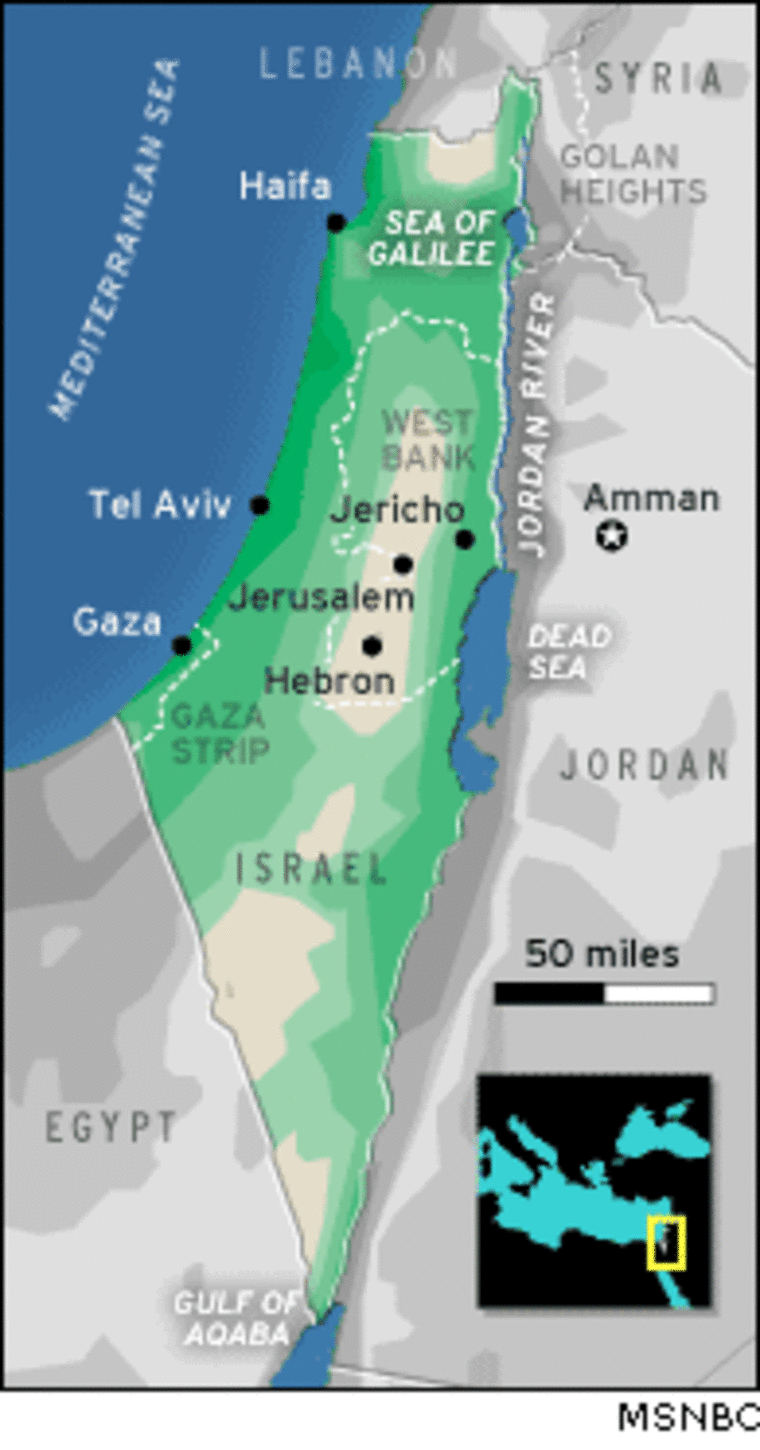Before Mohammed Nadi strapped two pipe bombs and a detonator onto his chest and set out for an Israeli roadblock to kill himself and as many Israeli soldiers as possible, he had one last thing to do.
Not saying a prayer or shedding tears.
He went to his friend Mustafa's home to play computer games. He's just a kid.
Nadi is a 15-year-old Palestinian schoolboy who is now being interrogated by Israel's secret service, the Shin Beth. But the likelihood he has much to reveal is remote. He was just a pawn.
He was chosen by members of the Al Aqsa Martyrs Brigades, picked up five times after school and persuaded to become a suicide bomber.
Persuaded to be a pawn
"They talked and they talked, and at last I agreed," said Nadi, with an Israeli flag over his left shoulder, an Israeli soldier guarding him over his right shoulder and a forlorn, tearful look on his face.
At school, Mustafa, who did not give his last name, was angry. "Mohammed is too young," he said. "They should not give a child a bomb. And Mohammed should not have taken it. He should have refused."
Too late. Now Nadi faces a jail sentence. The likelihood of getting out early because he is so young is slim because he insists he wanted to be a martyr. So Israel would be afraid he'd try again.
"He's been brainwashed," his mother, Dalal Nadi, said as she cried. "I have lost my son."
This year alone about 50 Palestinian boys under the age of 18 have been turned into suicide bombers by the Al Aqsa Martyrs Brigades, the same militants whose bombs have killed hundreds of Israelis.
NBC News interviewed Mohammed in captivity, spoke to his parents and to the leaders of the Al Aqsa Martyrs Brigades in Nablus, who predictably denied any knowledge of Mohammed and swore they would never send young boys to their death.
But the most surprising conversation we had as we traced Nadi’s sad story was with his schoolmates.
Schoolchildren telling
In the past, Palestinian children, when confronted with a TV camera, would instantly spout the slogans — "I want to be a martyr, too!" "Kill the Jews!" "Army dogs!"

But outside Nadi’s school a different story emerged.
Yhehia Bukaleh is also 15 and sat next to Mohammed in class. He's sad to have lost his friend. With classmates crowding around, all with fuzzy mustaches beginning to line their upper lips, Bukaleh echoed Mohammed's friend Mustafa.
"I think the Al-Aqsa Brigades talked to him and told him not to come to school. Mohammed was a good student but he started falling behind in his studies," explained Bukaleh. "He told me that he will go to the checkpoint. I told him, leave these things alone, stay far away from them. They should not have sent him, he is too young."
Other boys spoke, too, and all agreed with Mohammed's parents. The reason the militants send young boys is clear — they don't want to kill themselves. And they want to destroy the cease-fire between Israel and the Palestinians. Every time there is peace and quiet and the soldiers pull out of town, the boys said, the militants try to send a bomber to kill the Israelis and destroy the truce.
When they fail, they deny sending the boys. If they succeeded, they would celebrate their victory, said the schoolboys. These boys, as they say, had knowledge way beyond their years.
And as I listened to them, and their talk of exams and computer games, I wondered. What do kids this age at home talk about?
And I wondered, what is Mohammed, who was promised a place in heaven with 72 virgins, thinking about now?